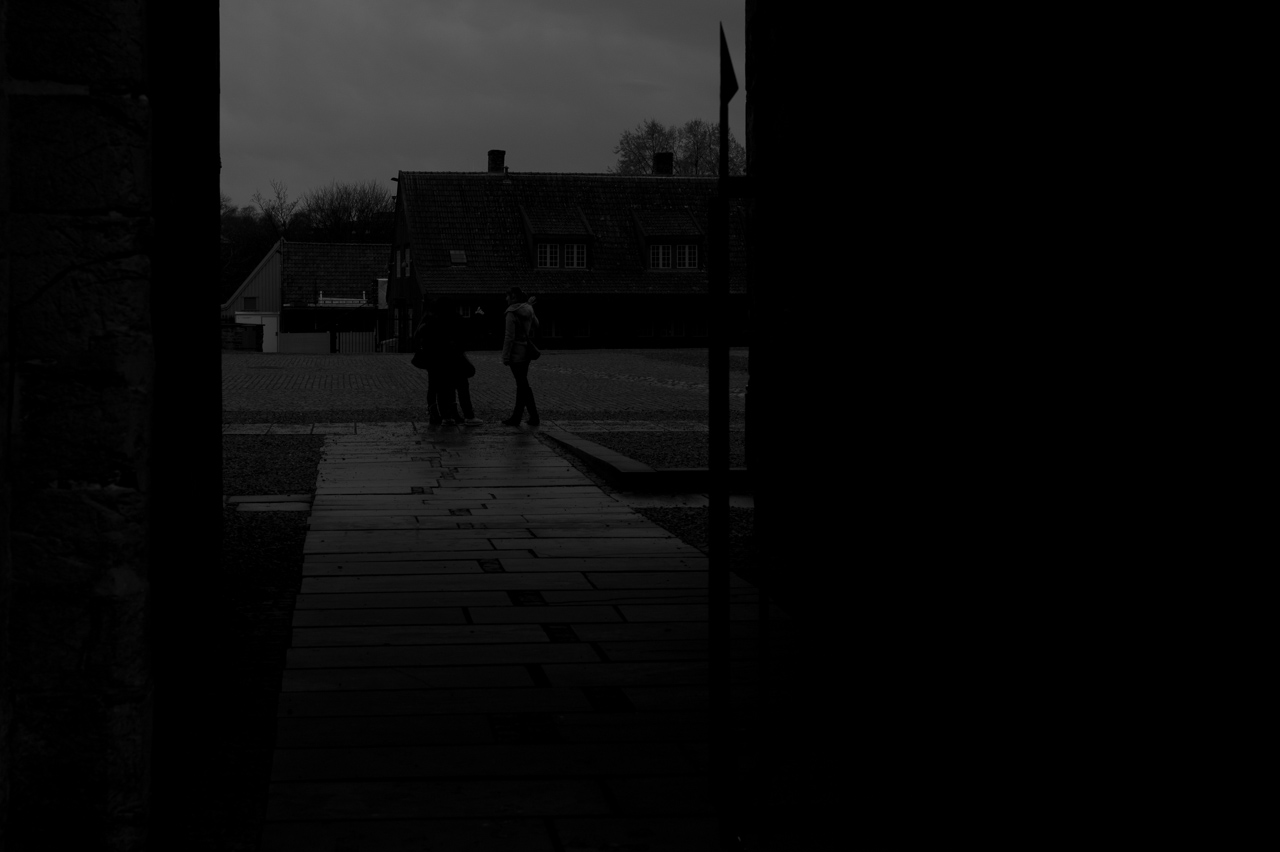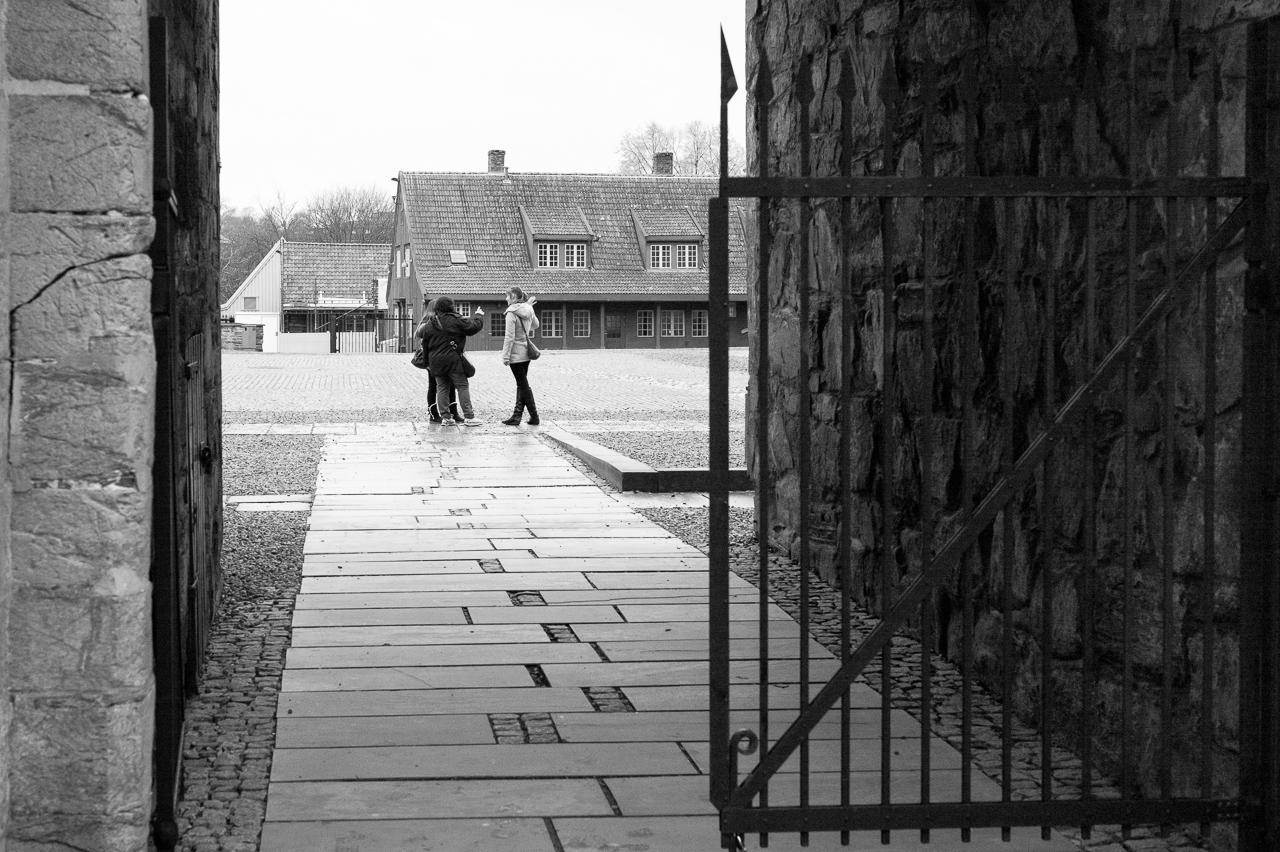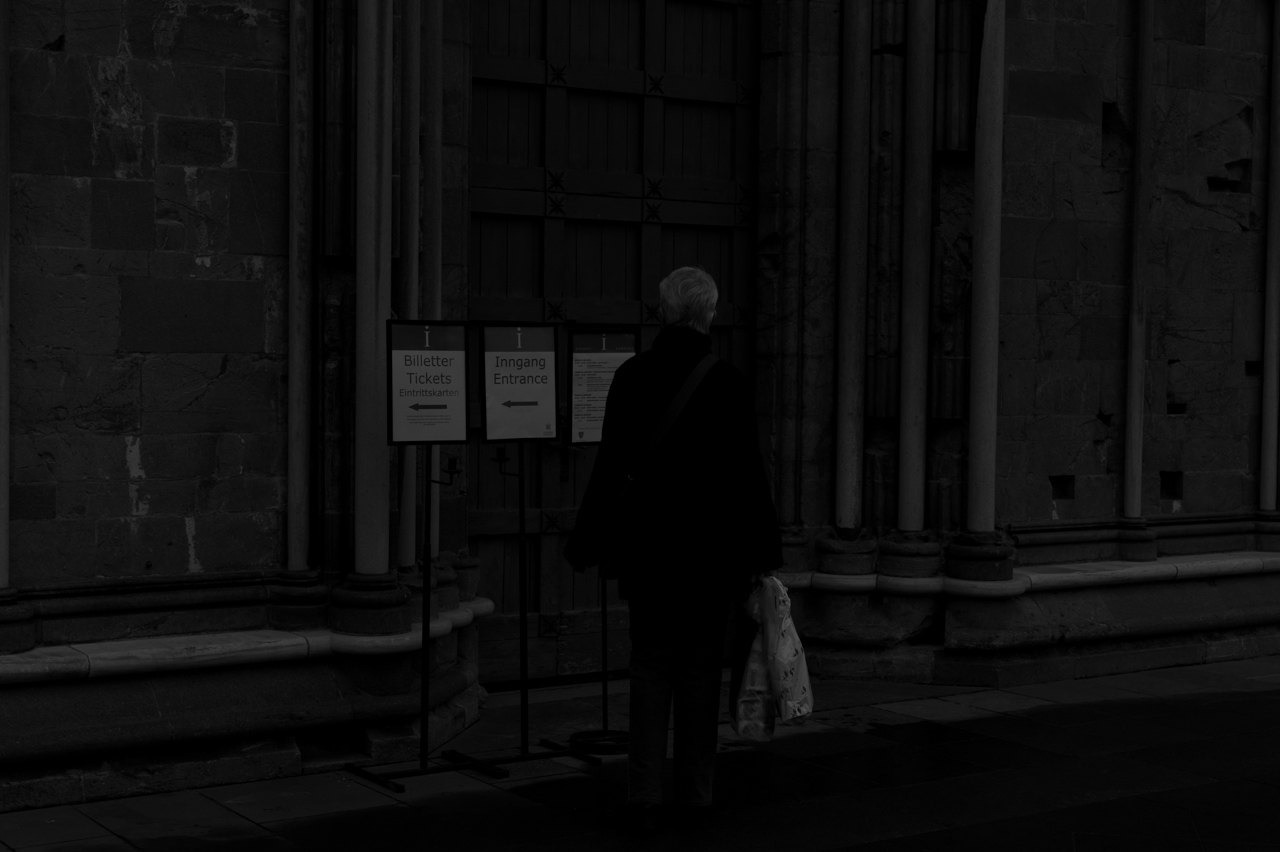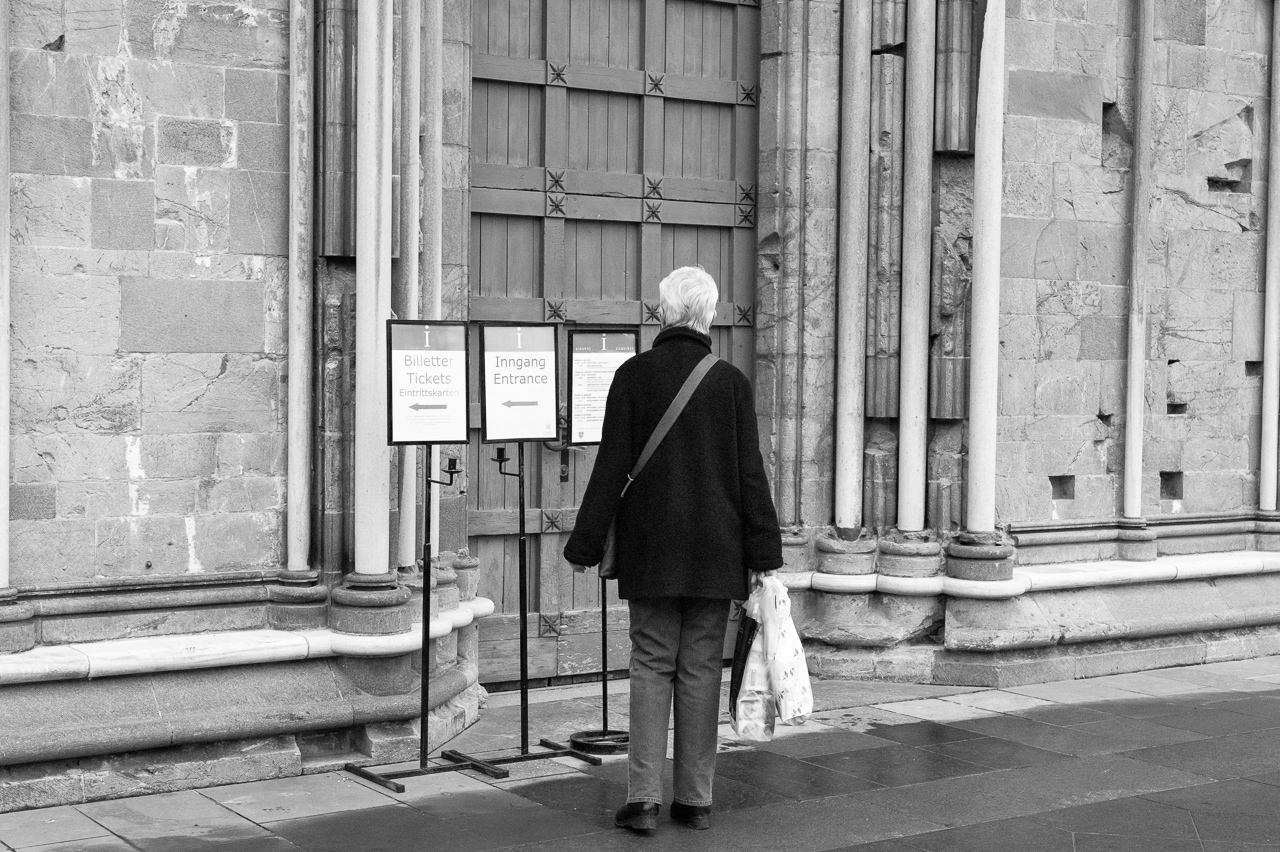A few nights ago I was doing some long-exposure work with my camera, and I had manually set the ISO setting to its lowest setting (a fairly high value of 320 compared to other cameras). I usually use Auto-ISO on my camera, or manually set my ISO pretty high (800-6400).
Yesterday I decided to go for a walk in my hometown, and I brought the camera as I usually do. I rarely have any photography goals set when I go for a walk, and I really enjoy the act of making photographs – even bad one’s – just for the sake of making pictures and practising on composition. I almost never use the LCD display on my camera at all when I am out walking – I prefer viewing the files when I get back home.
Anyway, I assumed that my camera was set to Auto ISO up to 10000 (which is my default setting) and I manually selected my shutter speed (1/250) and set my lens to f/4-f/8 (depending on the scene). It was a very overcast and grey day. But my ISO was set manually to 320 and I used a yellow color filter which effectively reduces the exposure of 1 stop.
I didn’t notice that my photographs were severely under-exposed until I came home and imported the files to my computer. Oh well – might as well just delete everything – I thought – until I decided to check if I could actually recover some of the images and make them look decent. At ISO 320 the MM captures a whole lot of data in the shadow areas, so why not play with the files and see how much could be recovered? Here is the results:
The exposure on the first image was pushed +4,05 stops in post. The shadow areas was also pushed by +15. There are no noise reduction applied to the raw conversion, and I have sharpened the file as usual.
Example 2 – before:
Example 2 – After:
The exposure on the second image was also pushed by +4,05 stops and the shadow areas was also bumped up to +15. Again – no raw noise reduction at all and the file was sharpened as usual (my settings are 50-0,7-50-0 in Lightroom).
You can easily push the files even further without getting into trouble. At ISO 320 I’d say you can easily push the files +5 stops which is the current maximum in Adobe Lightroom. You can also bump the shadow details as well to effectively increase the exposure even more, and if the small amount of noise bothers you just apply about 10-20 of noise reduction in Lightroom to remove most of the visible noise.
So if you ever make the same mistake as I did – don’t delete your images even though the exposure is way off! As long as you are using a fairly low ISO setting the useable dynamic range captured in the MM’s files are incredible. I’m not sure if it is worth using high ISO settings with this camera (as you loose dynamic range as the ISO setting is increased) compared to under-exposing by using lower ISO values and pushing the files in post. I think I’ll have to do some experiments with this in the future as I am currently doing a lot of night time shooting.
See my in-depth review of the Leica M Monochrom here
Leica M Monochrom review – a real life usage review – part one
Leica M Monochrom review – a real life usage review – part two
If you’re considering purchasing a Leica Summilux 50mm f/1.4 ASPH, and you feel that my review helped you make a decision, I would appreciate if you could look at the purchasing options via my Amazon affiliate:




25 Comments
Join the discussion and tell us your opinion.
Thanks for sharing. Yes i know you can do that with lightroom, I also use the silver pro 2 which gives you more options and very nice results.
cheers
Danny
Thanks Danny!
Nice results. There’s something compelling about the ‘mistakes,’ too. A fortunate accident, so to speak. Nice post!
Thanks for your comment Chris!
it will be interesting to see how you get on 🙂
I shoot mainly at night too and am still trying to figure out optimal ISO. i.e. 2500? 4000? etc. Ambient light at night here in HK is so variable, and I often get my (manual) exposure completed stuffed up!
Thanks! Personally the optimal ISO for me is whatever secures me a good enough shutter speed. Shutter speed is for me always more important than ISO, and I am not worried about using ISO 10000 if the exposure is good.
Good luck!
I do not have your technical knowledge, but this article is an important and interesting guide for those who think they have made some bad walking around the city with the desire to stop a few moments unforgettable. Your city offers many ideas and your fotogtafie are always beautiful …
Best wishes, Borge …
Hi Angelica! So nice to see you here on my blog 🙂
Even if an image looks unrecoverable you can indeed recover quite a lot from it if you wish! As long as you use the raw format, any camera is capable of quite a bit of shadow recovery usually.
Thank you! Best wishes for you as well! 🙂
great article. i ususally have the reverse issue with the monochrom. i often get burnt out files. don’t think there’s any way to rescue them 🙂
Nope 🙂 but using a yellow or orange filter will save the highlights a bit. Do you under expose while you shoot?
Thanks for this article, Borge. It’s very interesting and more than helpful as I begin using my Monochrom which arrived two days ago. So much to learn – but this helps get me off to a good start,
thanks sgain,
pete
Thanks Pete. I’m glad you found the article helpful. Enjoy your MM!
I will immediately snatch your rss as I can not in finding your email subscription hyperlink
or newsletter service. Do you have any? Kindly allow me understand so that I may subscribe.
Thanks.
Hi!
If you go to the blogs main homepage (www.bophotography.net) and click the “Follow” button that appears down on the bottom right of your webbrowser you can subscribe via email 🙂
whoah this blog is magnificent i love studying your articles.
Stay up the great work! You recognize, lots of people are
looking round for this info, you can aid them greatly.
Its like you read my mind! You seem to know so much approximately this, like you
wrote the book in it or something. I believe that you just can do with a few % to
pressure the message house a bit, but other than that, that is wonderful
blog. An excellent read. I’ll definitely be back.